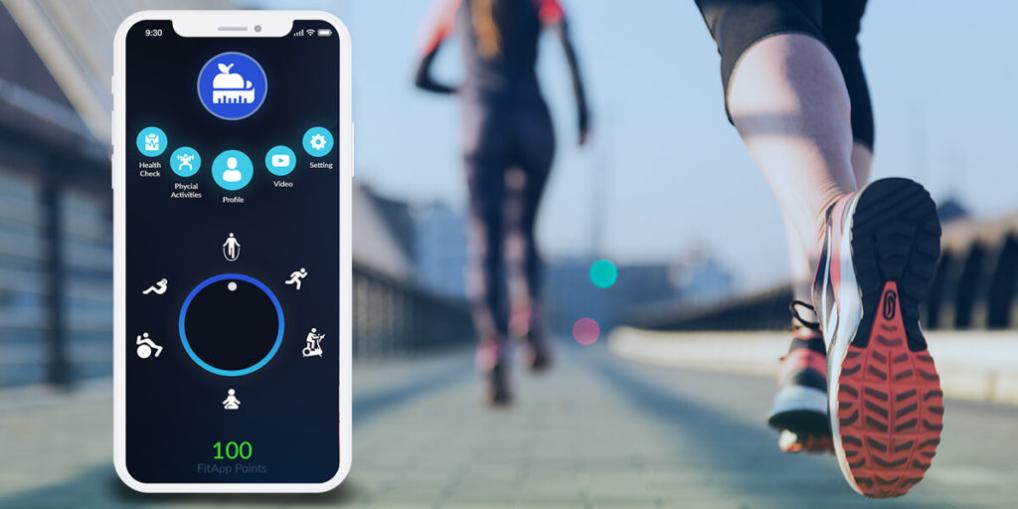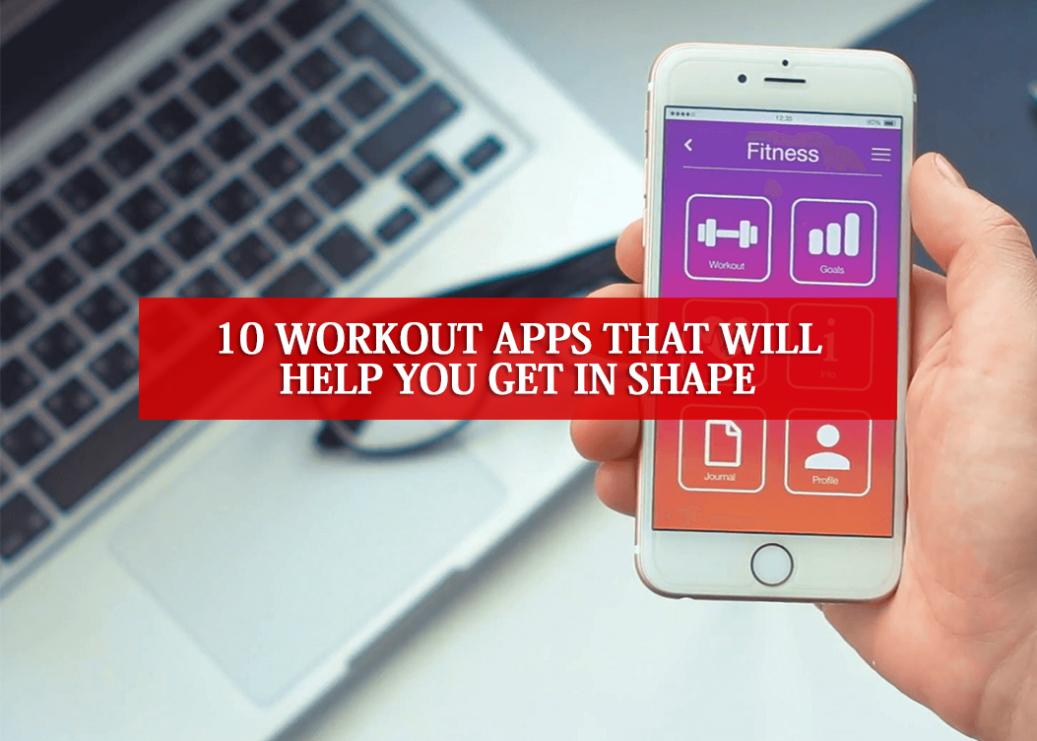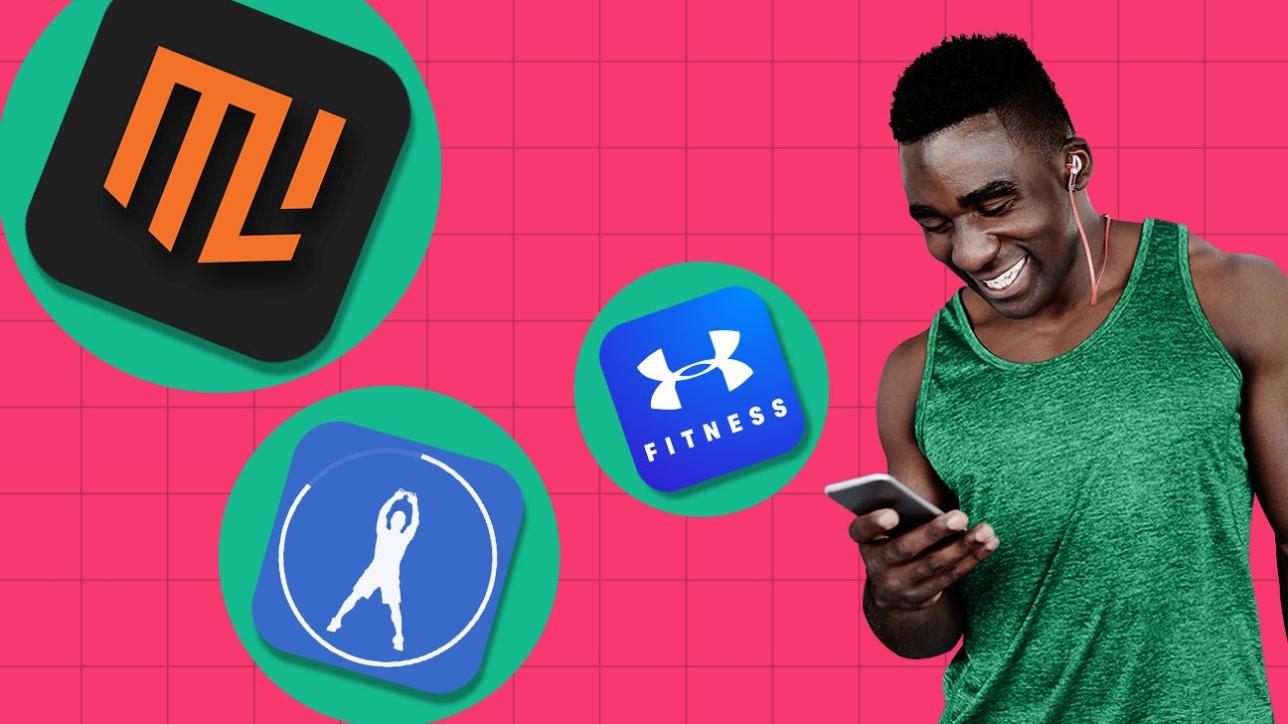What Are the Most Popular Fitness Apps?
Fitness apps have become increasingly popular in recent years, as people look for convenient and effective ways to improve their health and well-being. These apps offer a wide range of features, from tracking workouts and monitoring nutrition to providing personalized recommendations and gamified challenges.

Importance Of Fitness Apps In Promoting Healthy Lifestyles
Fitness apps can play a significant role in promoting healthy lifestyles by:
- Providing motivation and accountability: Fitness apps can help users stay motivated and accountable by tracking their progress, setting goals, and providing reminders.
- Offering personalized recommendations: Many fitness apps use algorithms to provide personalized recommendations for workouts, nutrition, and sleep based on the user's individual goals and preferences.
- Making fitness fun and engaging: Fitness apps often incorporate gamification elements, such as challenges, rewards, and leaderboards, to make exercise more fun and engaging.
- Encouraging healthy habits: Fitness apps can help users develop healthy habits, such as regular exercise, healthy eating, and adequate sleep, by providing reminders, tips, and support.
Categories Of Fitness Apps
Fitness apps can be broadly categorized into the following types:
- Exercise and workout apps: These apps provide guided workouts, tracking features, and personalized recommendations for various fitness activities, such as running, cycling, yoga, and strength training.
- Nutrition and diet apps: These apps help users track their food intake, monitor their calorie consumption, and receive personalized recommendations for healthier eating habits.
- Sleep and meditation apps: These apps provide guided meditation sessions, relaxation techniques, and sleep tracking features to help users improve their sleep quality and reduce stress.
- Activity tracking apps: These apps track daily activity levels, steps taken, and calories burned, providing users with insights into their overall physical activity.
Most Popular Fitness Apps
Some of the most popular fitness apps in each category include:
Exercise And Workout Apps
- Nike Training Club: Offers a variety of guided workouts, challenges, and personalized recommendations for various fitness levels and goals.
- Adidas Training by Runtastic: Provides a wide range of workouts, tracking features, and personalized training plans for different sports and activities.
- Peloton: Offers live and on-demand fitness classes, including cycling, running, yoga, and strength training, with real-time instructor guidance.
- Strava: A social fitness app that allows users to track their workouts, share their progress, and compete with friends in challenges.
- Freeletics: Provides bodyweight and HIIT workouts that can be done anywhere, with personalized training plans and progress tracking.
Nutrition And Diet Apps
- MyFitnessPal: Allows users to track their food intake, monitor their calorie consumption, and receive personalized recommendations for healthier eating habits.
- Lose It!: Offers a comprehensive food tracking system, personalized calorie goals, and challenges to help users lose weight and improve their overall health.
- Noom: Combines food tracking with personalized coaching and behavioral psychology to help users develop healthier eating habits and achieve their weight loss goals.
- Weight Watchers: Provides a structured weight loss program with a points system, personalized meal plans, and community support.
- MyPlate: A government-developed app that provides personalized nutrition recommendations based on the USDA's MyPlate guidelines.
Sleep And Meditation Apps
- Headspace: Offers guided meditation sessions, mindfulness exercises, and sleep sounds to help users reduce stress, improve focus, and sleep better.
- Calm: Provides guided meditations, sleep stories, and breathing exercises to help users relax, reduce anxiety, and improve sleep quality.
- Insight Timer: A meditation app with a large library of guided meditations, talks, and music from various teachers and traditions.
- Sleep Cycle: Tracks sleep patterns and wakes users up during their lightest sleep phase to help them feel more refreshed.
- Slumber: Offers personalized sleep soundscapes, bedtime stories, and guided meditations to help users fall asleep faster and improve sleep quality.
Factors Contributing To The Popularity Of Fitness Apps

The popularity of fitness apps can be attributed to several factors, including:
- User-friendly interfaces: Fitness apps are typically designed with user-friendly interfaces that make them easy to navigate and use, even for those who are not tech-savvy.
- Personalized recommendations: Many fitness apps use algorithms to provide personalized recommendations for workouts, nutrition, and sleep based on the user's individual goals and preferences.
- Gamification and rewards: Fitness apps often incorporate gamification elements, such as challenges, rewards, and leaderboards, to make exercise more fun and engaging.
- Social integration: Many fitness apps allow users to connect with friends and family, share their progress, and compete in challenges, adding a social element to fitness.
- Accessibility and portability: Fitness apps are accessible on smartphones and tablets, making them portable and convenient for use anywhere, anytime.
Benefits Of Using Fitness Apps
Using fitness apps can provide numerous benefits, including:
- Improved physical fitness: Fitness apps can help users improve their overall physical fitness by providing guided workouts, tracking progress, and offering personalized recommendations.
- Healthier eating habits: Nutrition and diet apps can help users develop healthier eating habits by tracking food intake, monitoring calorie consumption, and providing personalized recommendations.
- Better sleep patterns: Sleep and meditation apps can help users improve their sleep quality and reduce stress by providing guided meditation sessions, relaxation techniques, and sleep tracking features.
- Reduced stress and anxiety: Fitness apps can help reduce stress and anxiety by providing mindfulness exercises, guided meditations, and relaxation techniques.
- Increased motivation and accountability: Fitness apps can help users stay motivated and accountable by tracking progress, setting goals, and providing reminders.
Challenges And Limitations Of Fitness Apps

While fitness apps can provide numerous benefits, there are also some challenges and limitations to consider:
- Data privacy and security concerns: Fitness apps collect a significant amount of personal data, including activity levels, food intake, and sleep patterns. There have been concerns about how this data is used and protected by app developers.
- Potential for misinformation and false claims: The fitness app market is largely unregulated, and there is a risk of misinformation and false claims about the effectiveness of certain apps or features.
- Over-reliance on technology: While fitness apps can be helpful tools, it's important to avoid becoming overly reliant on technology and neglecting other aspects of a healthy lifestyle, such as social interaction and outdoor activities.
- Lack of human interaction: Fitness apps can provide personalized recommendations and guidance, but they cannot replace the expertise and support of a qualified healthcare professional.
Fitness apps have become increasingly popular as a convenient and effective way to improve health and well-being. These apps offer a wide range of features, from tracking workouts and monitoring nutrition to providing personalized recommendations and gamified challenges. While fitness apps can provide numerous benefits, it's important to be aware of the challenges and limitations and to use these apps in conjunction with a balanced lifestyle and regular consultations with healthcare professionals.
YesNo

Leave a Reply